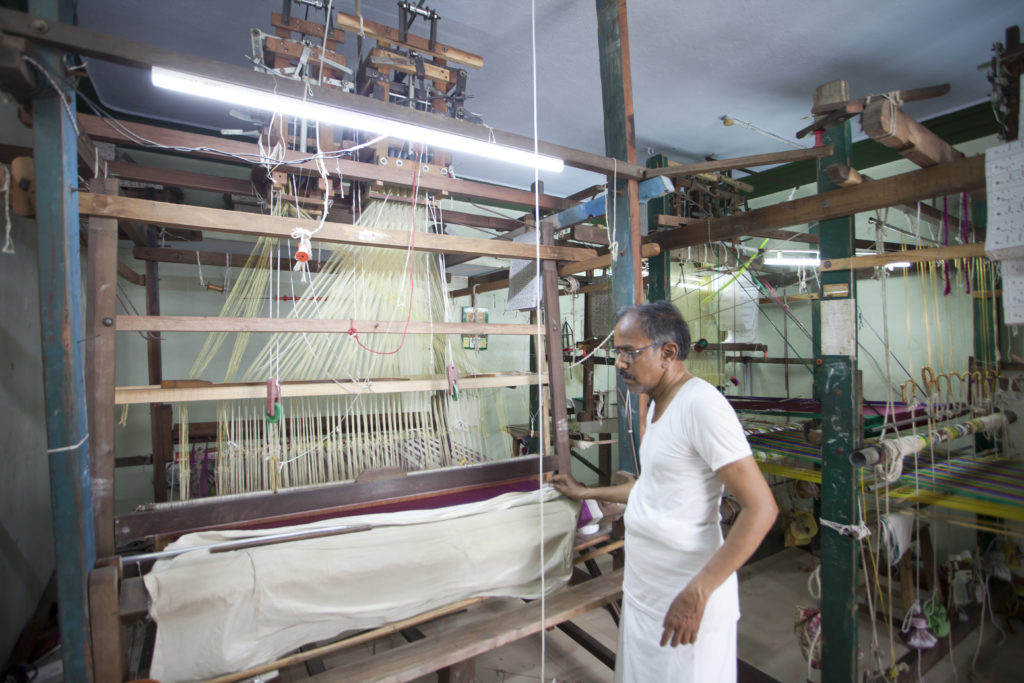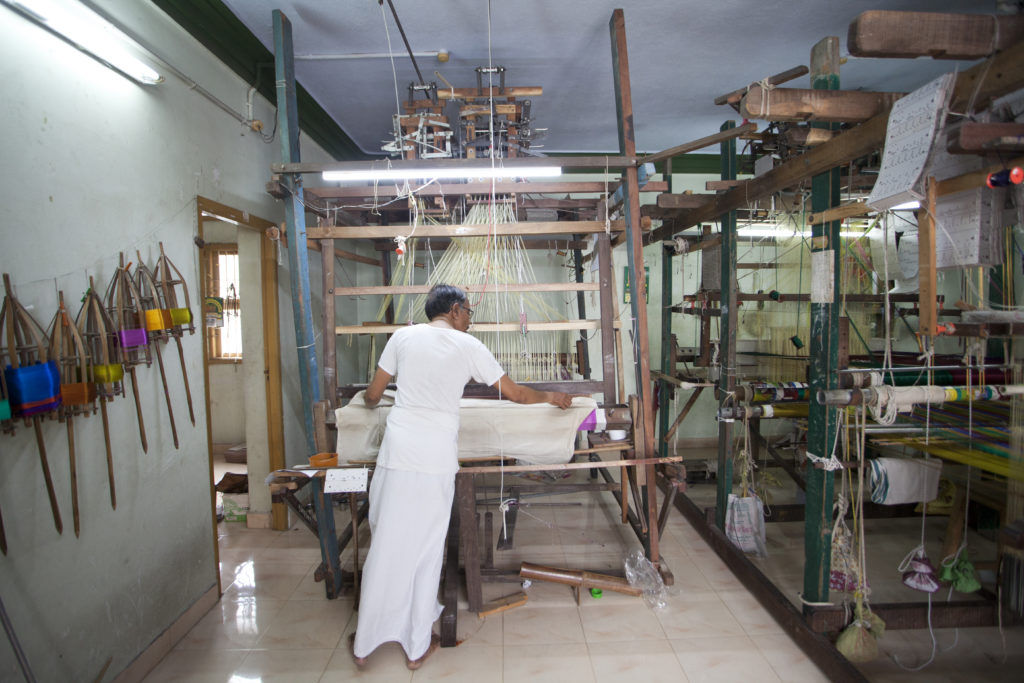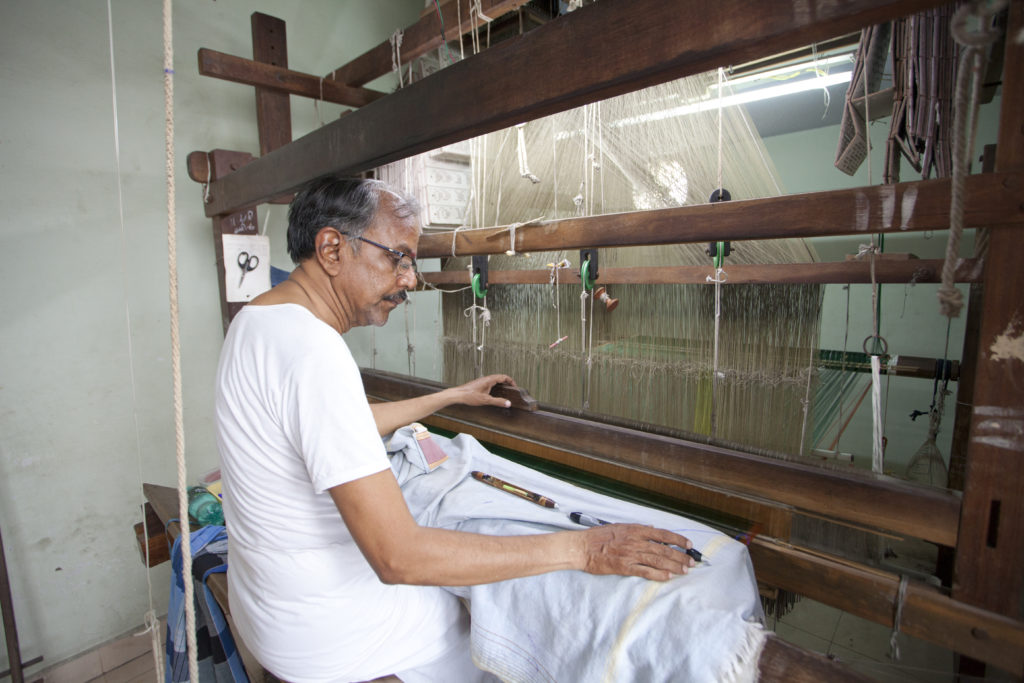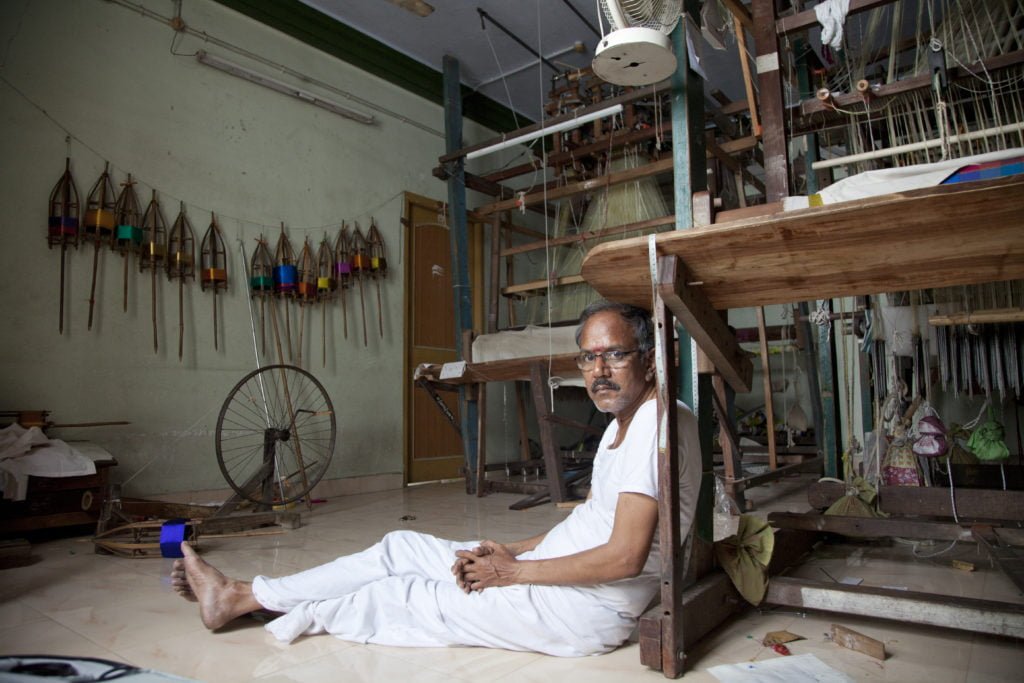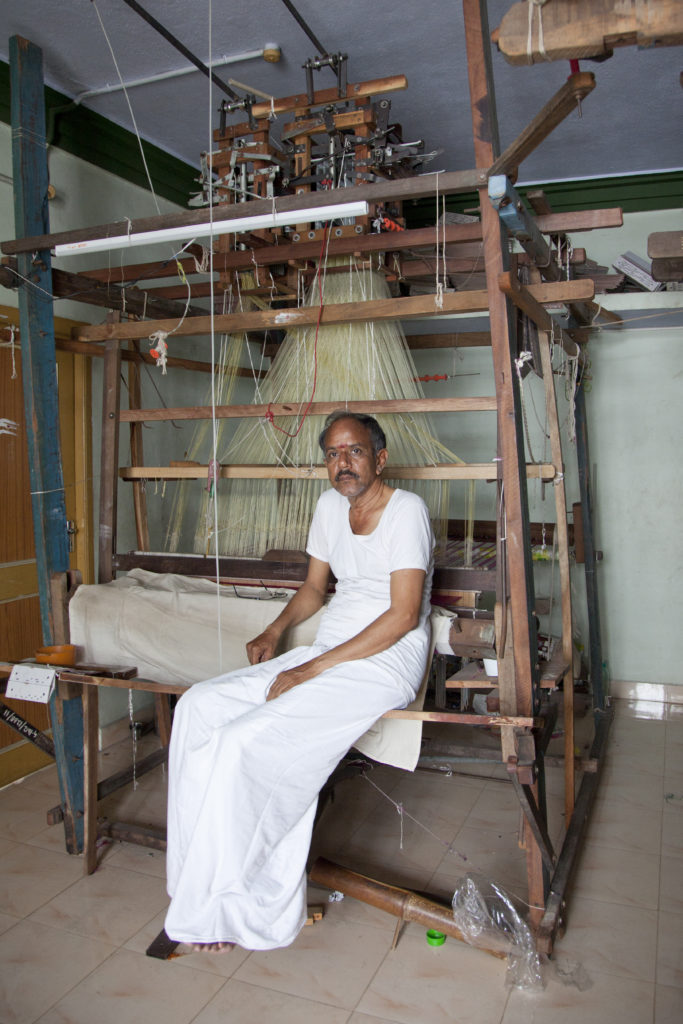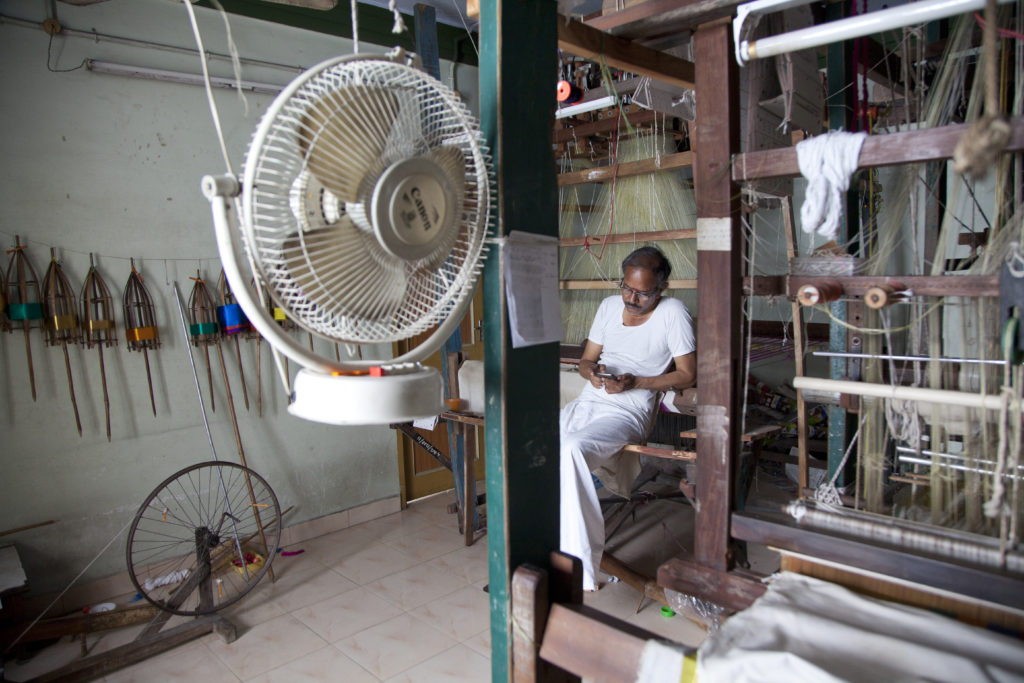well, a dreamy saree anyhow
“Khadi is very delicate,” says master weaver, Krishnamoorthy. “You have to treat it carefully, like it is an honoured guest.”
“Romba bhigu vechu neiyannam.” Treat it with a lot of bhav or respect.
To this end, weavers wake up earlier than usual when working on a khadi weave. Because they know that everything takes longer.
They have to try things out first, plan for “wastage,” experiment on a few inches to see what goes wrong.
The Process of Weaving a Khadi Saree
In fact, they have been planning for this for a month. They collect kanji— the leftover rice starch in a clay pot for a month.
On the day that the threads are ready to be prepared, they wash and dye the yarn in “medhamana choodu,” or medium warmth. The dyed yarn is shade-died.
Once done, then they use the month-old starch (kanji). The ratio is 150 grams of rice starch to 3 or 4 litres of water. The yarn is dipped in the starch to give it the strength to withstand the loom.
The threads are separated so that they don’t stick together. “The border colour is separate, the body colour is separate,” says the weaver, Krishnamoorthy. It is left to dry. Too much sun and the yarn will stick. So they choose to dry the yarn in the early morning or evening. Shade-dried yarn yet again.
Twisting the yarn to get it ready for the loom
The next step is called “achu punaippu.” The yarn is hand-twisted. The warp is of fine quality. “Creating the khadi paavu (warp) is a lot of work because the yarn is so fine and delicate,” say the weavers.
The next step is to find appropriate weavers who can handle fine khadi.
“We have to choose weavers who have patience and skill. Most important of all is the temperament that is needed for this type of job. Khadi weaving demands a combination of perfectionism and ease. You have to do things slowly and carefully so that the yarn is coaxed into place. These are rare sarees.

The weaver resting by the loom 
The weaver and his tools 
Resting in between weaves
Once the khadi weaving begins, things fall into a rhythm. Weavers try to finish it in one long breath.
Because, you see, khadi is like a demanding bride. You have to treat her with respect and with the delicacy she demands.


